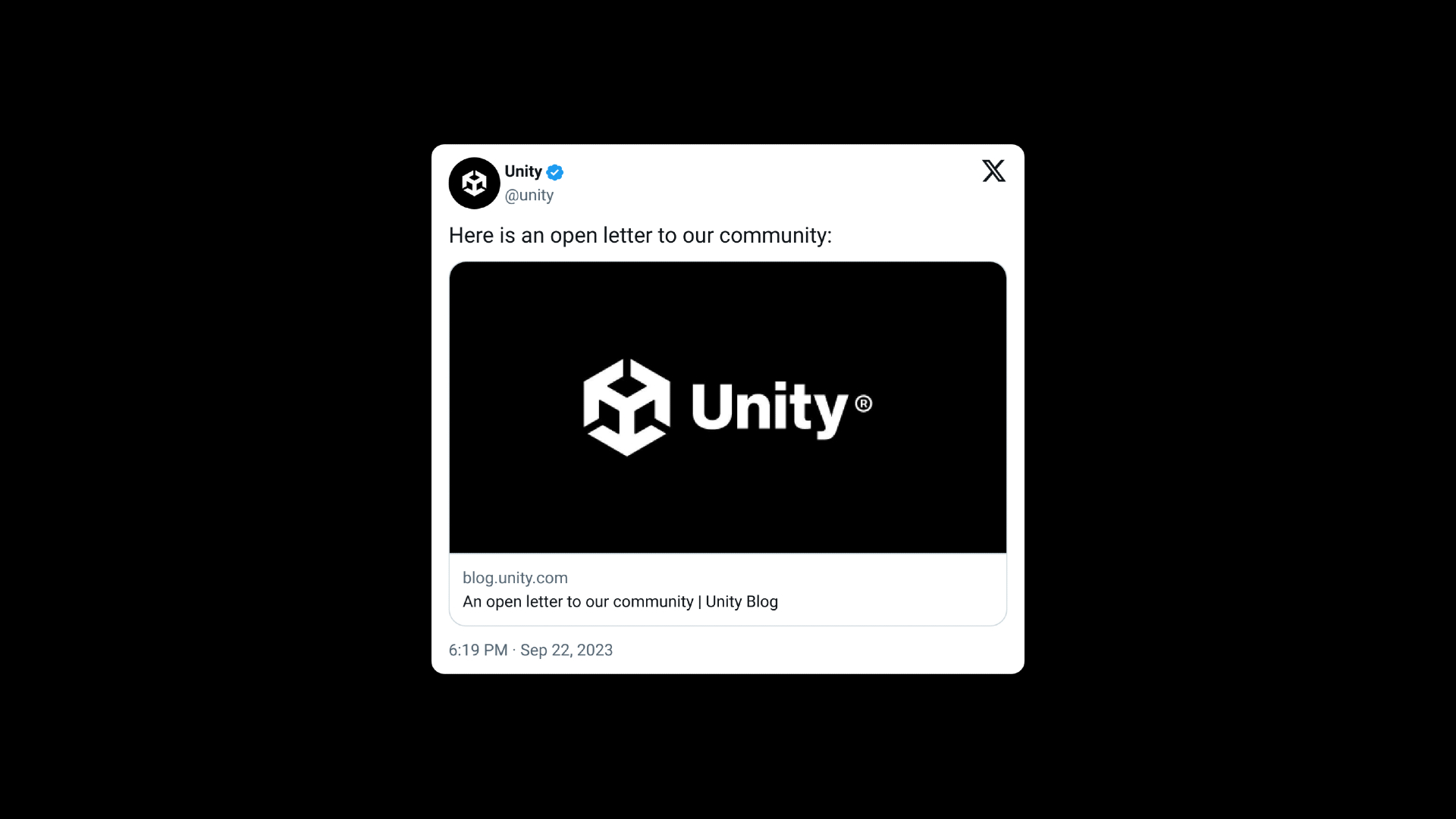Unity is the cross-platform engine used by many of my favorite developers to create everything from small indie gems to bigger, more well-known games. The company recently disclosed upcoming changes to its fee policy which would see developers pay per-install of their games. The out-of-the-blue announcement was controversial, prompting a variety of game devs to respond detailing why this would have a negative impact on their work, with some creators going as far as backing out of using the engine altogether.
Amid the Unity controversy, many developers including those behind some of the best PC games disagreed with the new fee policy. Some devs opted to release official statements describing how the coming changes would adversely affect creators, while others took action, stating that they would remove their games or use another engine. Some notable examples include the possible Cult of the Lamb deletion and the announcement of Rust 2‘s development without Unity.
Following the negative feedback, Unity has revised its fee policy to better fit developers’ expectations. In an open letter, the company starts off by saying it is “sorry.” Acknowledging that “we should have incorporated more of your feedback,” Unity says “we have heard your concerns, and we are making changes in the policy we announced to address them.”
“Our Unity Personal plan will remain free and there will be no Runtime Fee for games built on Unity Personal,” the company continues. “We will be increasing the cap from $100,000 to $200,000 and we will remove the requirement to use the ‘Made with Unity’ splash screen.” Games with less than a million dollars “in trailing 12-month revenue” will not be subject to the fee.

Regarding Unity Enterprise and Unity Pro, the company writes, “The Runtime Fee policy will only apply beginning with the next LTS version of Unity shipping in 2024 and beyond.” Any games that are currently shipped or being worked on will not be included unless their developer chooses to upgrade them using the new version of Unity.
Unity stresses that it “will make sure that you can stay on the terms applicable for the version of Unity editor you are using.” For games that are subject to the runtime fee, the company is giving devs a choice of “either a 2.5% revenue share or the calculated amount based on the number of new people engaging with your game each month.”
“Both of these numbers are self-reported from data you already have available,” the company specifies, “You will always be billed the lesser amount.” Unity finishes its statement by saying it wants “to continue to build the best engine for creators.” Initial reactions from game developers seem positive, with creators like Rami Ismail saying the new policy “works.”
Redigit, the creator of indie sandbox game Terraria, reposted the company’s policy update following a donation to Unity’s rivals. Garry Newman, the iconic dev behind Steam classics such as Garry’s Mod and Rust, feels the revision is “fair enough.” It looks like the upcoming Rust sequel will not use Unity though, as the dev says that. nonetheless, “the trust has been broken.”
